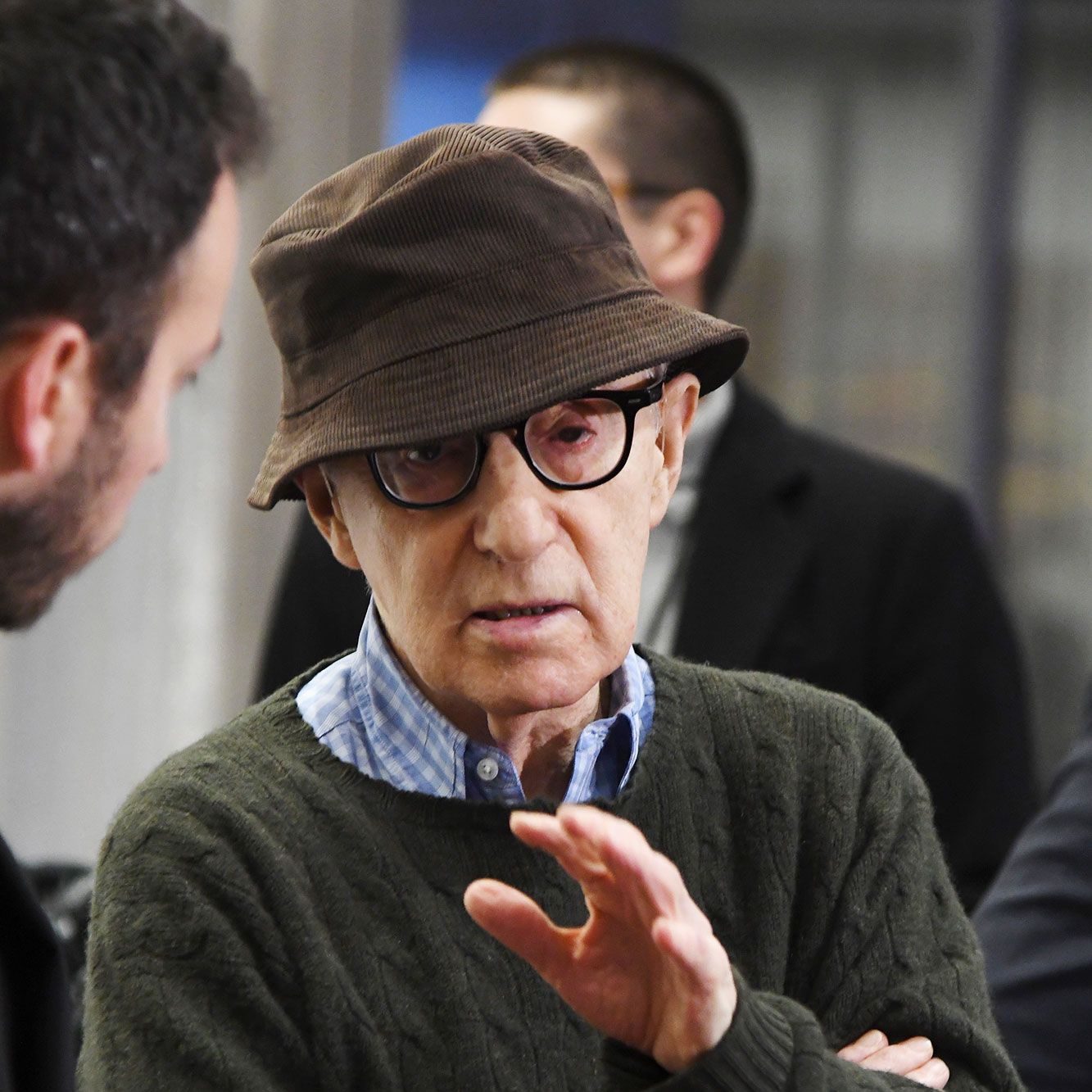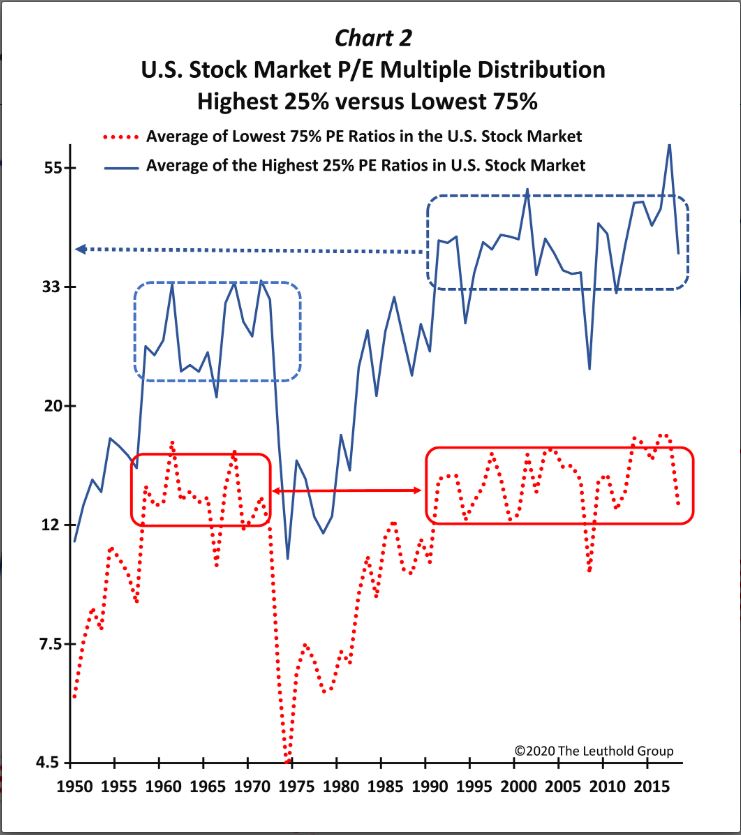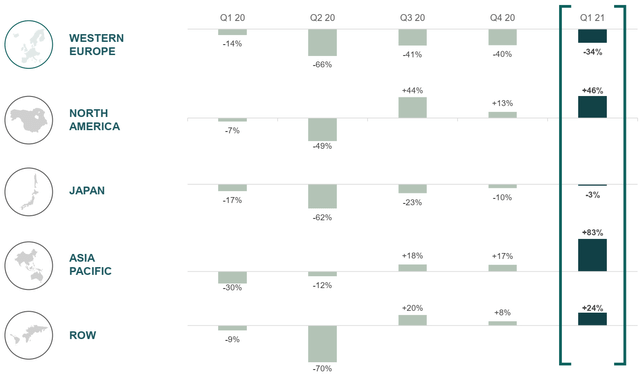Is Sean Penn's Defense Of Woody Allen A #MeToo Failure?

Table of Contents
Sean Penn's Defense of Woody Allen: A Detailed Look
The specifics of Penn's statements and their context.
Sean Penn's defense of Woody Allen hasn't been a singular statement but rather a series of comments across different interviews and appearances. His arguments consistently downplay the allegations against Allen.
- Lack of Evidence: Penn has repeatedly emphasized the lack of concrete legal proof against Allen, suggesting insufficient evidence to condemn him.
- Questioning the Accusations: He has voiced skepticism regarding Dylan Farrow's accusations, hinting at potential inconsistencies or motivations.
- Focus on Artistic Merit: Penn has frequently highlighted Allen's artistic contributions, implicitly suggesting that his work should be judged separately from his personal life.
For example, in a [insert source and date], Penn stated, "[Insert direct quote from Sean Penn about the lack of evidence or questioning of the accusations]". These comments, made in [mention the platform, e.g., a podcast interview, magazine article], have been widely circulated and analyzed. The timing of these statements, particularly in the current climate of heightened awareness surrounding sexual misconduct, has fueled further controversy.
Public Reaction and Backlash
The public response to Penn's defense has been overwhelmingly negative. Social media exploded with criticism, with many accusing Penn of dismissing a survivor's testimony and undermining the #MeToo movement.
- Outrage on Social Media: Twitter and other platforms were flooded with hashtags such as #IStandWithDylan and #BelieveSurvivors, condemning Penn's stance.
- News Articles and Opinion Pieces: Numerous news outlets and commentators criticized Penn's statements, highlighting the potential harm of such endorsements for survivors of sexual abuse.
- Arguments Against Penn's Stance: Critics argued that Penn's focus on legal proof ignores the systemic barriers faced by survivors in coming forward and the complexities of proving past sexual abuse. They pointed out that lack of a conviction doesn't equal innocence.
- Impact on Penn's Public Image: Penn's defense has undeniably damaged his public image, with some calling for boycotts of his work and future projects.
The #MeToo Movement and Shifting Sands of Public Opinion
The Evolution of the #MeToo Movement and its Continued Relevance.
The #MeToo movement, ignited in 2017, drastically shifted societal perceptions of sexual harassment and assault. It empowered survivors to share their stories and brought about increased accountability for perpetrators.
- Increased Awareness: #MeToo broadened public understanding of the prevalence of sexual abuse and harassment.
- Shifting Societal Norms: The movement has led to significant changes in workplace policies, legal processes, and cultural attitudes towards sexual misconduct.
- Recent Shifts in Public Opinion: While there have been some debates regarding due process and accusations, the overall societal support for survivors and the condemnation of sexual assault remain strong.
The Role of Celebrity Endorsements in Shaping Public Perception.
Celebrity endorsements carry significant weight in shaping public opinion. High-profile individuals can sway public belief in accusations, particularly when they express support for or opposition to an accused individual.
- Influence on Public Belief: When celebrities support an accused person, it can embolden others to doubt survivors' claims.
- Examples of Celebrity Involvement: Numerous examples exist of celebrities publicly supporting or opposing individuals accused of sexual misconduct, with varying degrees of impact on the cases' public image and legal proceedings.
- Impact on Legal and Social Outcomes: While celebrity endorsements don't directly determine legal outcomes, they can profoundly influence public perception and social consequences.
The complexities of separating art from the artist.
The debate surrounding the continued appreciation of art created by individuals accused of misconduct remains complex. Should we separate the art from the artist?
- Different Perspectives: Some argue that artistic merit should be judged independently from the artist's personal life, while others contend that appreciating the art implicitly condones the alleged misconduct.
- Feasibility of Separation: The separation of art and artist is often easier said than done; the context surrounding the artwork invariably influences its reception.
- Desirability of Separation: The debate about separating art from the artist is ongoing and lacks a universally accepted answer.
Dylan Farrow's Allegations and the Ongoing Legal Landscape
Summary of Dylan Farrow's accusations against Woody Allen.
Dylan Farrow, Mia Farrow's adopted daughter, has publicly accused Woody Allen of sexually assaulting her when she was seven years old. These allegations have been central to the ongoing controversy.
- Details of the Allegations: Farrow's accusations include specific details and timelines of the alleged abuse.
- Legal Proceedings and Investigations: While there have been investigations, no criminal charges were ever filed against Allen. This lack of legal resolution further fuels the ongoing debate.
The lack of definitive legal resolution and its implications.
The absence of a definitive legal outcome in Dylan Farrow's case significantly impacts public perception.
- Reasons for Lack of Conclusive Outcome: Factors such as the passage of time, difficulties in proving historical sexual abuse, and legal complexities contribute to the lack of a definitive verdict.
- Impact on Public Perception: This ambiguity allows for differing interpretations and contributes to the ongoing controversy surrounding Allen's guilt or innocence.
- Challenges in Prosecuting Cases of Historical Sexual Abuse: Prosecuting cases of historical sexual abuse presents significant challenges, often leading to inconclusive legal outcomes.
Conclusion
Sean Penn's defense of Woody Allen, while grounded in his perspective on the lack of legal evidence, highlights the ongoing complexities of the #MeToo movement and the sensitive balance between artistic appreciation and accountability for alleged misconduct. The significant impact of celebrity endorsements on shaping public perception of sexual assault is undeniable. This case underscores the importance of considering all sides of an issue, especially in cases where there is a lack of conclusive legal resolution. The debate surrounding this situation compels us to engage in further discussions about accountability, belief, and the impact of celebrity endorsements on the fight against sexual abuse. Let's continue the conversation – what are your thoughts on Sean Penn’s defense and the ongoing implications for the #MeToo movement?

Featured Posts
-
 High Stock Valuations Why Bof A Thinks Investors Shouldnt Panic
May 24, 2025
High Stock Valuations Why Bof A Thinks Investors Shouldnt Panic
May 24, 2025 -
 Massachusetts Police Seize Over 100 Firearms Arrest 18 Brazilian Nationals On Gun Trafficking Charges
May 24, 2025
Massachusetts Police Seize Over 100 Firearms Arrest 18 Brazilian Nationals On Gun Trafficking Charges
May 24, 2025 -
 Amsterdam Accueille Le Ces Unveiled Europe Les Dernieres Innovations
May 24, 2025
Amsterdam Accueille Le Ces Unveiled Europe Les Dernieres Innovations
May 24, 2025 -
 Jordan Bardella Leading The French Election Opposition
May 24, 2025
Jordan Bardella Leading The French Election Opposition
May 24, 2025 -
 6 Kering Share Slump After Q1 Performance Misses Expectations
May 24, 2025
6 Kering Share Slump After Q1 Performance Misses Expectations
May 24, 2025
